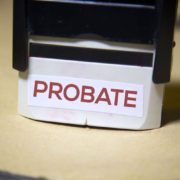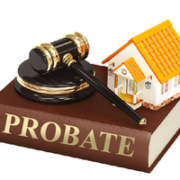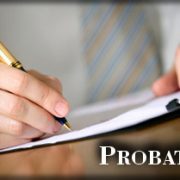You Have Been Appointed Executor, What Do You Do?
Cleveland, Ohio, estate planning lawyer, Daniel A. Baron, Ohio, offers the following information on what your duties are as an executor of an estate. Contact Daniel A. Baron of Baron Law to answer all your questions on what your duties are and to help guide you through the events that will be taking place and how to navigate through them.
An executor appointment is bittersweet. It is heartwarming that your recently deceased friend or loved one had faith enough in your abilities to trust you with the administration of their estate, however, fulfilling the duties of an executor is no simple matter. For the next six months, at minimum, you “stand in the shoes” of the dearly departed. You ensure their debts are paid, their affairs are closed in orderly fashion, and their final wishes are communicated to and followed by grieving friends, family, and business associates.
Most individuals have little prior experience with executorships. Often people agree many years before the faithful day to be an executor and do little preparation or research for when the time arrives. Executor appointments are serious matters with serious consequences. A failure to perform the duties of an executor satisfactorily can result in estate assets being squandered, the infliction of additional stress and trauma upon grieving survivors, and, in extreme cases of misconduct or neglect, personal liability for the executor. Thankfully, executors have been a common reality in estate law for many centuries. As such, what you need to do, how to do it, and when you need to do it are all spelled out in the laws of Ohio. Naturally, the best adviser to seek out if one is appointed an executor is an Ohio estate planning attorney. A Cleveland estate attorney can walk you through the do’s and don’ts and ensure filings are proper in form and timely in submission.
- Open the Estate
As an executor, the first thing you need to do is to open the estate. There is a myriad of probate proceedings available to open an estate, each with its own filing requirements and hurdles. Some may even be able to avoid probate all together, saving time and stress for an executor. Again, an estate attorney is in the best position to advise the best way to probate an estate, if there is a need at all.
II.Inventory the Estate
Once an estate has been opened, an inventory of the probate assets is required to be filed with the probate court within 3 months of the executor’s appointment. Only probate assets are inventoried. Non-probate assets pass to beneficiaries or owners outside of the will and, as such, are not considered a part of a decedent’s estate. Your estate attorney will know which estate assets are subject to probate. Practical tip, it is good practice for those with an estate plan to keep a comprehensive accounting of all assets in a centralized location to assist an executor in locating assets and keeping track of values and amounts of assets. Additionally, telling your executor that this accounting exists is just as important as doing it all. All too often executors are completely in the dark regarding the composition of an estate and the location of critical documents.
To take the actual inventory of decedent’s estate, you will use the series “6” standardized forms from the Ohio Supreme Court website in conjunction with the relevant local probate court forms. There are 88 probate courts in Ohio, each with its own way of doing business, as such, each probate court has particular forms they prefer. Initially, use the local forms, when in doubt, the Ohio Supreme Court forms are always acceptable.
An inventory itself is a detailed description of all probate estate assets along with their values. Detailed information regarding the assets, such as account numbers, serial numbers, stock certificate numbers, and book, plat, and parcel numbers for real estate are denoted in the inventory. The inventory, at the most basic level, consists of two forms: 1) the Inventory and Appraisal form and 2) the Schedule of Assets form. The Schedule of Assets contains the detailed information regarding the estate. Basically, a list of asset identifiers and information, i.e. the who, what, and where of assets. The Inventory and Appraisal form is the summary of the probate asset information that is detailed on the Schedule of Assets form. It recaps the values of the tangible and intangible personal property and real estate owned by the estate. During the drafting of these documents, appraisals and valuations of assets take place. Naturally, there are particularized rules and procedures for such, but that is a discussion for a later date.
After all the assets are located and relevant investigations completed, the inventory is submitted to the court and a hearing date is set. Per the laws of Ohio, a probate court is required to set all inventories for hearing not less than 10 days and not more than 30 days after filing of the inventory. During this time notice is required to be sent to all interested parties of the estate, e.g. next of kin, devisees, legatees, and creditors of the estate. An inventory hearing cannot be undertaken unless receipt of formal notice for all interested parties is confirmed or waivers for those interested parties are signed and filed with the court. The notices themselves are standardized forms assessable via any probate court website.
While waiting for the notice period to expire and for the hearing date to arrive, interested parties can file exceptions to the inventory. Exceptions, generally, are claims to particular estate assets and whether they have been properly included or excluded from an inventory. The important thing is filing of an exception to an inventory triggers an inventory exception hearing which, in turn, continues the inventory hearing. Thus, an inventory cannot be approved until the exceptions are addressed and the probate process stalls.
If there are no exceptions filed, or the exceptions have been resolved, and after the notice period has been observed, the court will conduct an inventory hearing and enter an Entry Approving Inventory. This Entry, in essence, states going forward, the approved inventory will be the presumptive valuation and appraisal of estate assets. Thus, distributions of estate assets according to the laws of Ohio or the last will and testament of decedent can begin.
At this point in the process, a significant part of the legwork for an executor is finished. The major hurdles remaining deal with will-contests, asset distribution, and closing of the estate. An upcoming article will flesh out the remainder of the duties and obligations of executors going forward past the inventory hearing and the probate court’s Entry Approving Inventory. If you’ve been appointed an as executor and have questions regarding what you need to do and when you need to do it, contact an Ohio estate planning attorney. Spending a little time now can save you a lot of time later.
You don’t have to be rich to protect what you’ve spent a lifetime trying to build. To find out whether a trust is right for your family, take the one-minute questionnaire at www.DoIneedaTrust.com. There are a number of different trusts available and the choices are infinite. With every scenario, careful consideration of every trust planning strategy should be considered for the maximum asset protection and tax savings. For more information, you can contact Mike Benjamin of Baron Law LLC at 216-573-3723. Baron Law LLC is a Cleveland, Ohio area law firm focusing on estate planning and elder law. Mike can also be reached at mike@baronlawcleveland.com.
Helping You and Your Loved Ones Plan for the Future.
About the author: Mike E. Benjamin, Esq.
Mike is a contracted attorney at Baron Law LLC who specializes in civil litigation, estate planning, and probate law. He is a member of the Westshore Bar Association, the Ohio State Bar Association, the Cleveland Metropolitan Bar Association, and the Federal Bar Association for the Northern District of Ohio. He can be reached at mike@baronlawcleveland.com.







